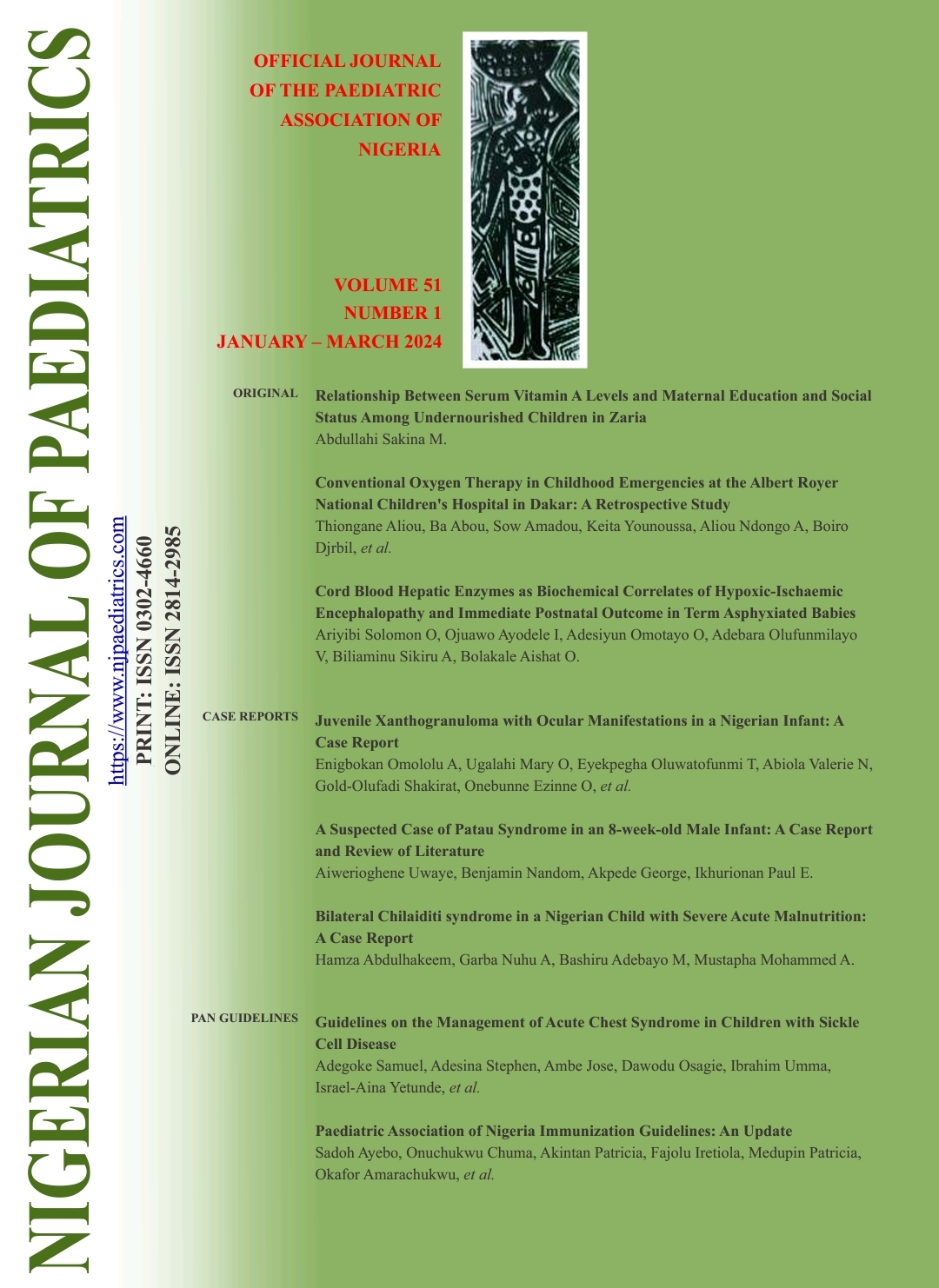About the Journal
Published by the Paediatric Association of Nigeria The maiden issue of the Niger J Paediatr appeared in 1974, with Dr A. Antia as Foundation Editor in Chief.
With the mission of promoting and advancing the practice and study of Paediatrics and Child Health in Nigeria as well as in other African countries and the rest of the world
The Nigerian Journal of Paediatrics a quarterly journal publishes original articles, brief reports on clinical and laboratory observations; case reports of substantive value; invited editorial annotations; invited papers on recent electronic clinical briefs, advances, clinical diagnosis, announcements (meetings, courses, job advertisements); summary reports of conferences and book reviews.
Announcements
Current Issue




